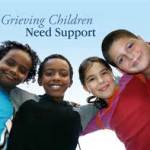Facing the onset of grief’s winter
A couple whose son died earlier this year recently asked my wife and I how we coped with losing ours. How did we handle those first holidays? What did we do for our other children? How do we hold on to him, and to each other?
Their grief is so raw, their upheaval and torment so pressing, it was unavoidable that getting together would retrigger our own pain and self-recriminations. Yet we may have something helpful to offer this family. While facing the loss of our son and our emotions to some degree every waking day, we’ve been able to make something meaningful from the wreckage.
Our son Michael was killed in a horrible car crash 12 years ago last weekend. While it was not his fault and he was not driving, there is little solace in that. The weeks leading into his anniversary are always difficult, mired in a grey foreshadowing of winter — the very act of raking the last fallen leaves and dwindling daylight hours bring us back. Still, we feel fortunate to sustain an ongoing connection with him.
There are no magic words or prescription to offer others facing the onset of grief. Certainly no cure per se, other than to suggest that it’s quite possible to move through your worst times, and grow from them.
To continue reading Ken’s post, please click here to go to the National Alliance for Grieving Children (NAGC) web site, where this was first published Nov. 17, 2014.
 November is Children’s Grief Awareness month, and during this time the NAGC is shining a light on the needs of children and teens grieving a death. Leading up to the holiday season, the NAGC aims to share insights about how to be sensitive to the needs of grieving children and their families now and throughout the year. Click here for excellent resources and links.
November is Children’s Grief Awareness month, and during this time the NAGC is shining a light on the needs of children and teens grieving a death. Leading up to the holiday season, the NAGC aims to share insights about how to be sensitive to the needs of grieving children and their families now and throughout the year. Click here for excellent resources and links.
Although the holidays are typically a joyful time for many of us, the season of celebration can also be particularly difficult for bereaved children and teens. Often referred to as the “forgotten mourners,” children who are grieving the death of a loved one frequently feel isolated and alone, while family members and friends overcome with their own grief may struggle to provide the necessary support that children need.
How do we hold on to him, and to each other?
Since it is estimated that approximately one out of 20 children in the United States will experience the death of a parent or sibling before the age of 18, childhood grief is a widespread issue that can have a lifelong impact on the affected child’s emotional well-being.
In fact, according to a 2014 study that surveyed more than 27,000 people, the unexpected death of a loved one is the most frequently reported traumatic event in one’s life.
Please help lift up children and families going through this, especially during their first or early approaching winters without a loved one.
Author’s Note: Denise and Ken Brack are the founders of a nonprofit bereavement center, Hope Floats Healing & Wellness Center, in Kingston, Ma. The center offers free support groups and other services primarily for adults and their families, and complementary wellness programs.

